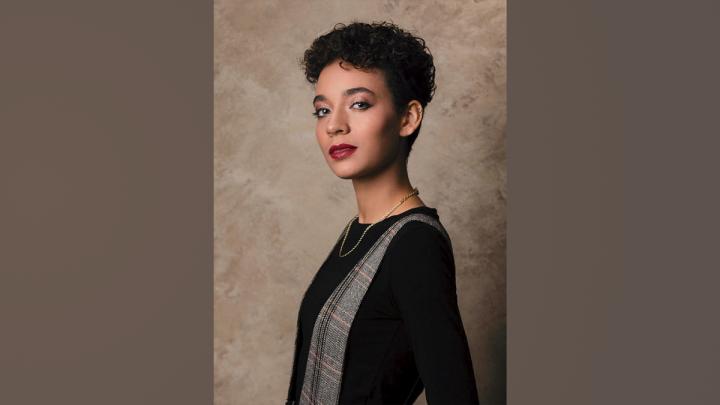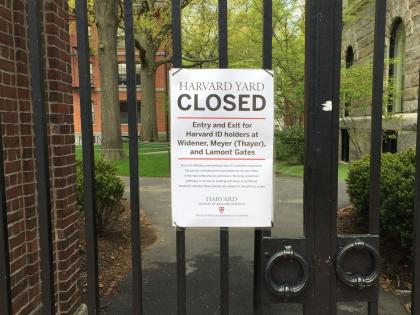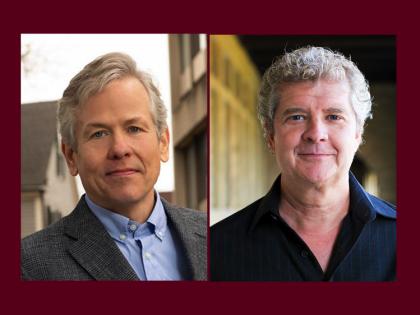“If you want me to, you know, pretend to be a raccoon, I can do that really well,” says actor, singer, and author Aislinn Brophy ’17. “Anything that involves music and movement. That’s kind of an odd, specific theater thing. But I find that I get cast a lot to play magical creatures of some kind—and also children.”
Talking with Brophy, it’s easy to see why: the quick smile, the wide, expressive eyes, the gestures that seem as descriptive as words. One of the first graduates to earn a degree in the College’s Theater, Dance, and Media concentration, Brophy (who uses they/them pronouns) has acted in independent theater productions in New England and the Southeast. In 2022, Brophy published How to Succeed in Witchcraft, a young adult fantasy in which a teenage heroine comes to the dawning realization that her feelings for Ana, her longtime academic rival—and costar in a musical at the two girls’ magical high school—are actually romantic. Last fall, Brophy returned to campus as an artist in residence with the Office of the Arts. They’re working on a new young adult novel (title: Spells to Forget Us) and experimenting with a comedic play (“just to see if I can do it”), while also leading workshops with undergraduate actors. It’s a lot, but for Brophy, that’s not unusual.
They were always a performer—at first, of classical music. Growing up in South Florida, the child of an Irish father and an Antiguan mother, Brophy played violin, flute, and piano. “I loved it, but not in the way you have to in order to make a career out of it,” they say. “I didn’t want to lay down my life for it.” Then, in high school came a clarifying moment: playing in the orchestra pit for a high school musical, Brophy looked up at the stage and remembers thinking, “I’m in the wrong spot.”
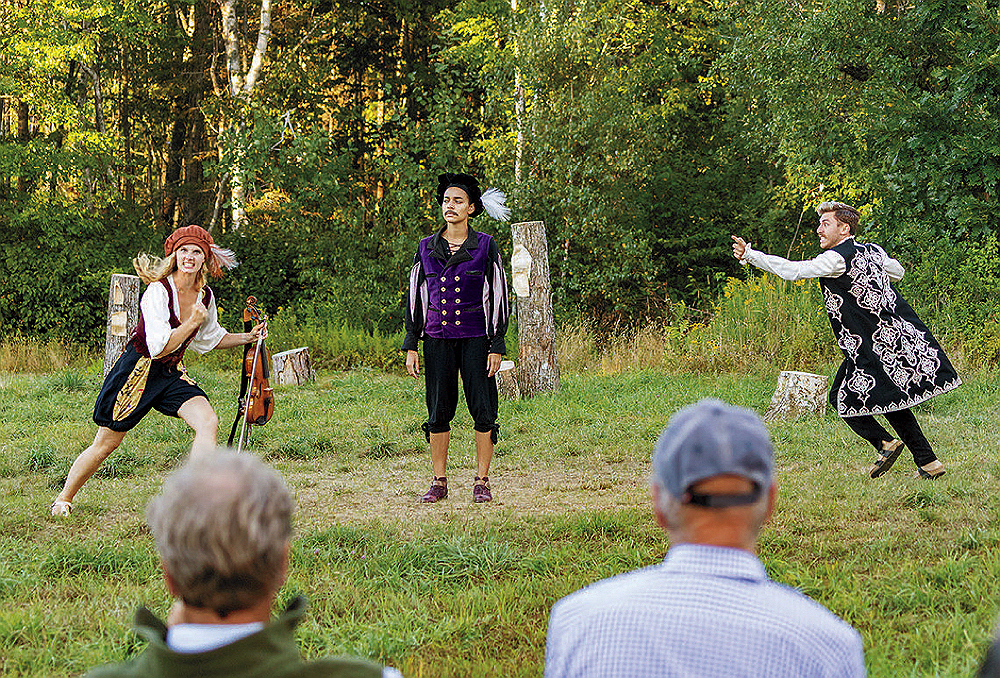
Brophy’s first role as an actor came during freshman fall semester at Harvard, in Paul Slade Smith’s Unnecessary Farce: A Comedy: “Very silly, very ridiculous—a lot of people kissing and running around. The audience loved it.” Brophy, so new to everything, remembers frantically googling “stage left” and “stage right” before rehearsals—terrified, but also entranced. “I loved it so deeply, in a way that I knew I was willing to practice in the way that I didn’t want to with classical music.” After that, Brophy leapt in, taking part in as many as five shows every semester, sometimes pitching in as a director or writer, too. Their post-collegiate credits include small theaters in Cambridge and Boston, as well as ISLE Theater Company in Maine, founded by Marvin Merritt IV ’20 and Anna Fitzgerald ’20. Last summer, before moving to Harvard, Brophy starred as Rosalind in ISLE’s production of Playing Mercury, a comedy written by Fitzgerald and inspired by Shakespeare’s As You Like It. In the play, Rosalind takes charge of her father’s dukedom and sets out to find him in France after a failed military campaign. “It was a lot of fun to play with a character who has an interesting relationship to gender in the theater,” Brophy says (in Shakespeare’s original, Rosalind disguises herself as a young man for most of the play). “That social experience, I was like—that’s my bag. I’m ready to do this.”
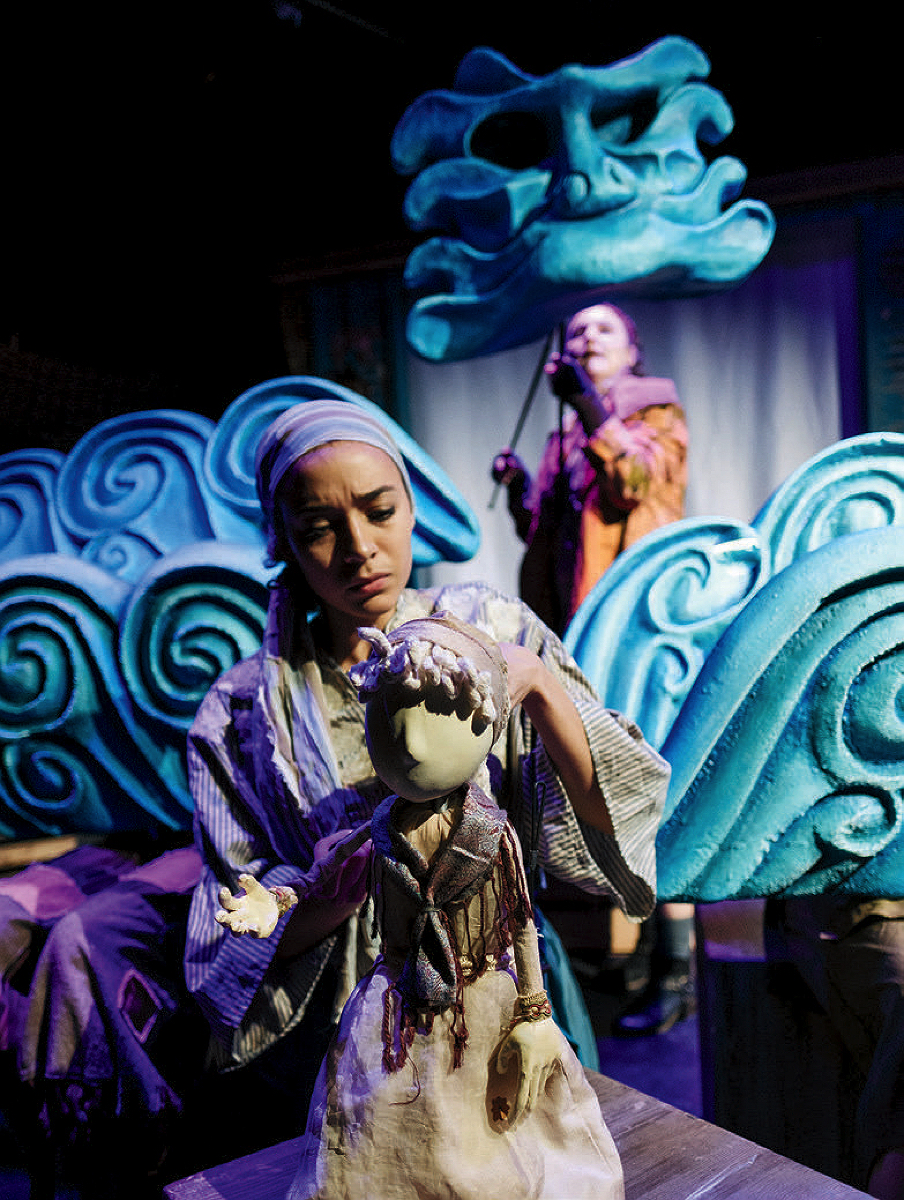
As an actor, Brophy always starts with a close read of the text to understand the characters. But also: “I’m the kind of person who discovers a lot in rehearsal,” Brophy says. “Finding things in my body, how my character walks, what their relationship is with other people in scenes with me.” Calling the theater’s collaboration “precious,” especially in contrast to the solitude of writing, Brophy says of acting, “In the end, I have to be in rehearsal to really figure it out.”
For Brophy, theater and writing have long felt intertwined. Their senior thesis was a play about climate change set in South Florida, where poor residents of color are living on rooftops in a devastated landscape, and young white activists arrive to try to help them: “kind of like if Teach For America was disaster relief.”
During the last couple of years, while launching their acting career, Brophy has leaned deeper into writing. After How to Succeed in Witchcraft, which Kirkus Reviews described as “#MeToo with a magical twist,” they embarked on Spells to Forget Us (scheduled for release later this year). The new book is set in a secret magical world in Cambridge, Massachusetts, and follows two older teenage girls—one a witch, the other not—who, because of a memory spell gone wrong, keep meeting and falling in love, never remembering that they’ve met before.
Brophy’s writing process is intense, and unending. It involves copious outlines, middle-of-the-night jottings, and lots and lots of notes on their smartphone. “I’m constantly writing down things in my notes app,” Brophy says. “Everything that’s ever occurred to me as a good story idea.” What Brophy ends up with is “a mishmash” that builds and builds, until some ideas fall away and the story becomes clear: “I have a little bit of a ‘throw spaghetti at the wall and see what sticks’ manifesto.” Paradoxically, Brophy’s also inspired by art that’s bad. “Anything I watch or read and think the concept is interesting, but the end result is not good, or I’d have done something different, I keep returning to those things, and stealing and transforming it,” they say. “And I end up with something radically different.”
